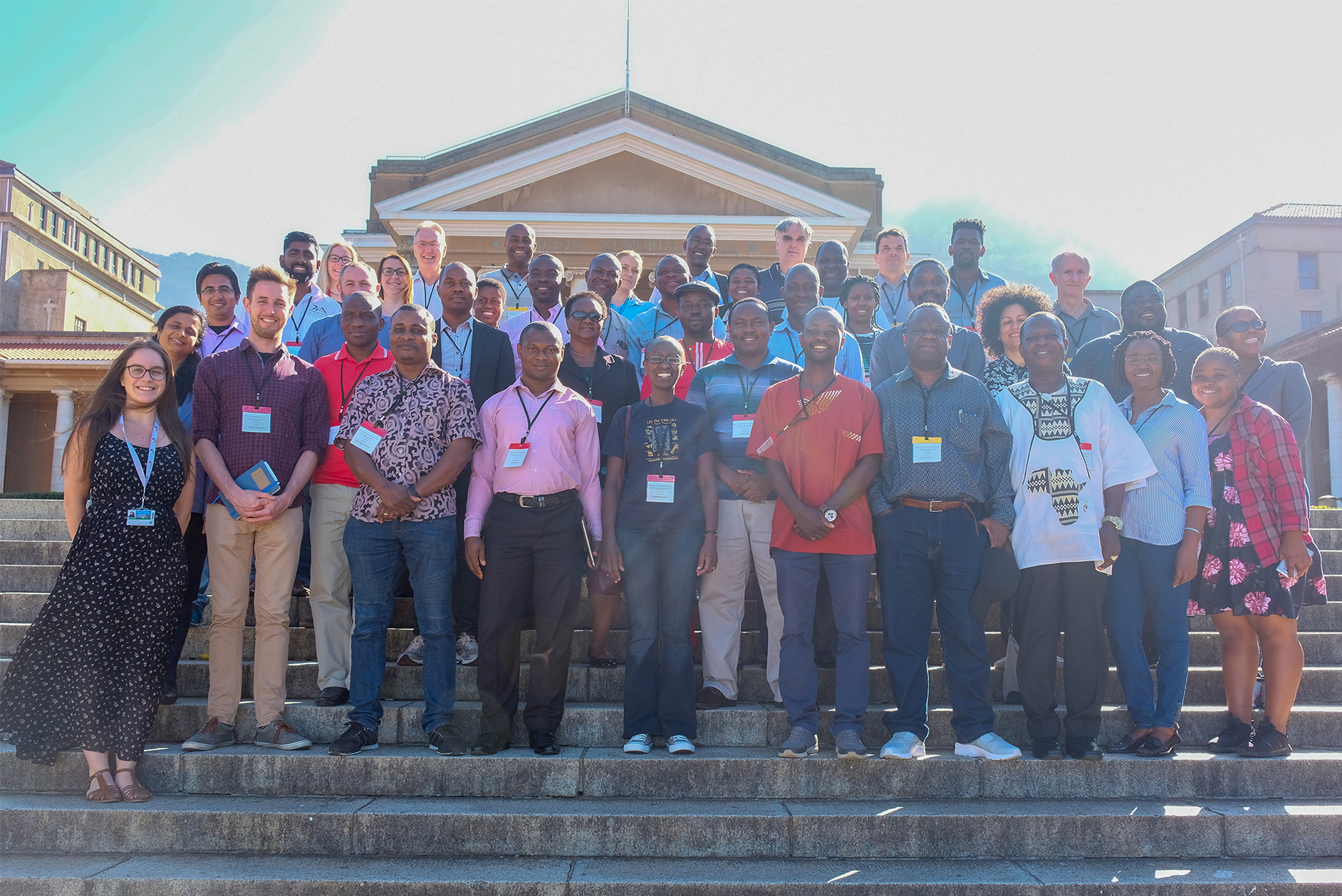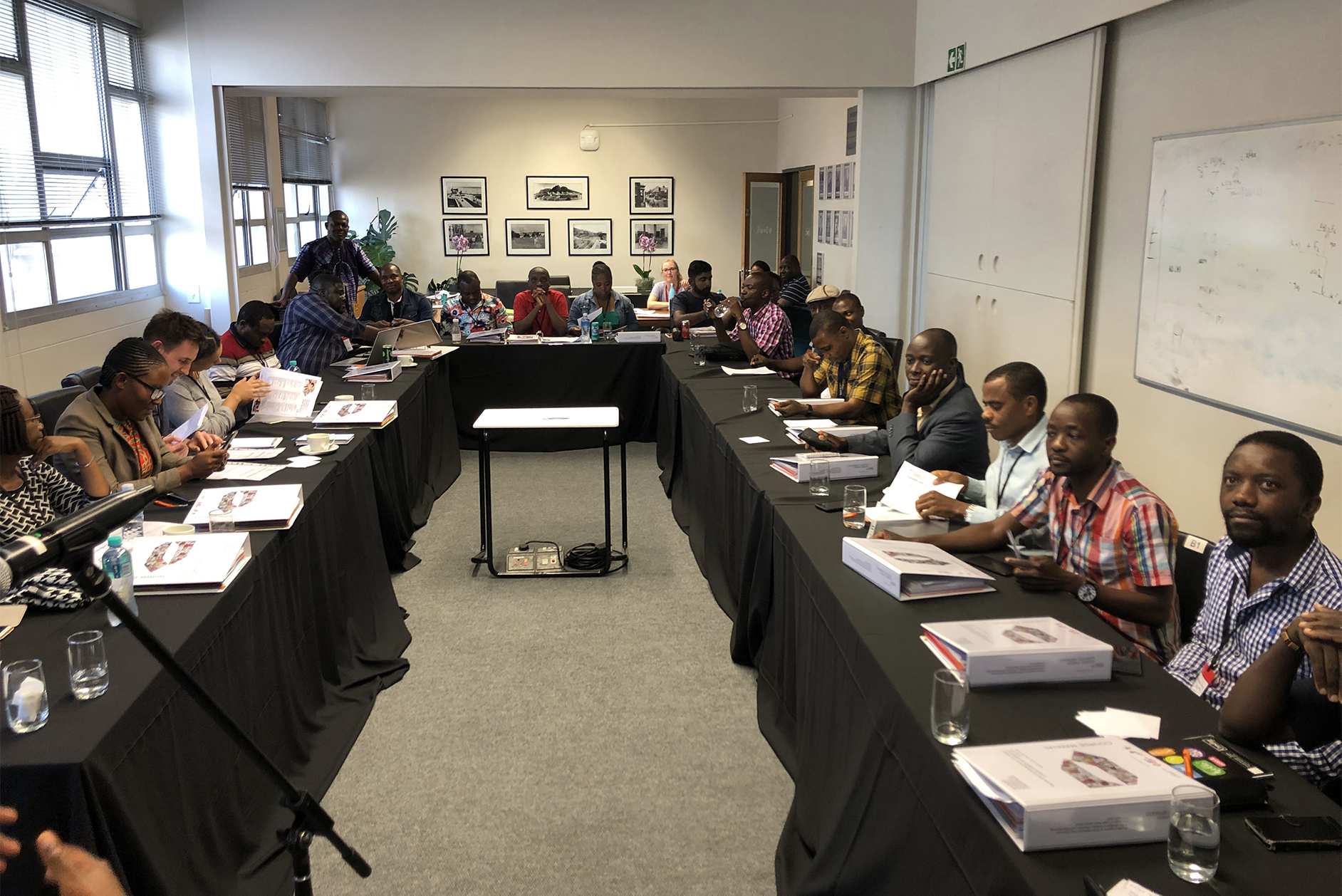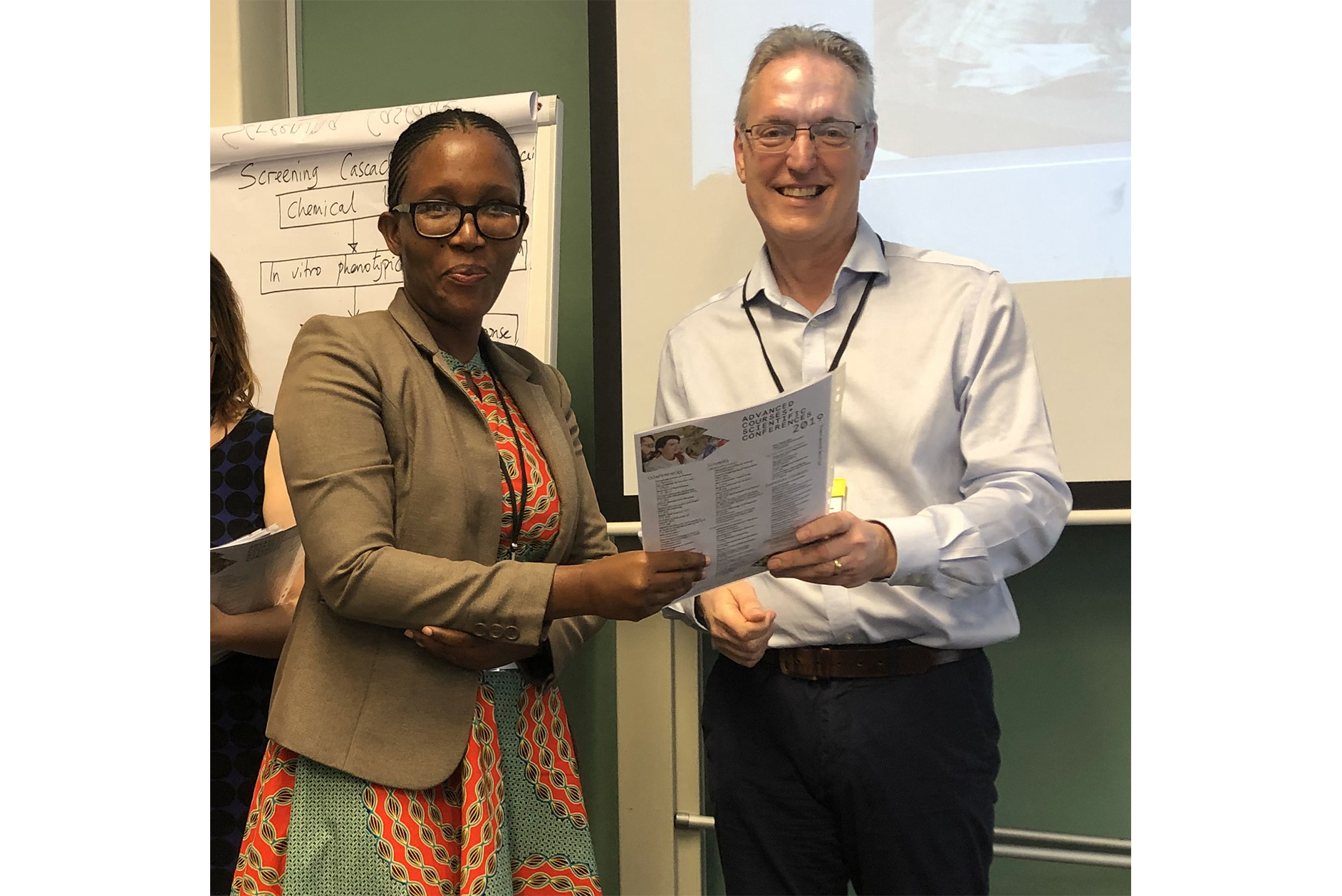
Strengthening capacity for drug discovery research in Africa
Course gives comprehensive overview of the drug discovery process with special focus on international and inter-disciplinary collaboration.
In April 2019 Advanced Courses and Scientific Conferences (ACSC) held a one-week course in South Africa entitled ‘Practical Aspects of Drug Discovery: At the Interface of Biology, Chemistry and Pharmacology’. Having taken place several times at the Wellcome Genome Campus in UK, the course was incorporated into the ACSC Overseas Courses programme for the first time, in collaboration with the Wellcome Centre for Anti-infectives Research (WCAIR), University of Dundee, and the Drug Discovery and Development Unit (H3D), University of Cape Town. Both WCAIR (led by Professor Paul Wyatt) and H3D (led by Professor Kelly Chibale), focus in developing treatments for communicable Neglected Tropical Diseases, TB, Malaria and HIV.
The aim of the course was to work collaboratively to build capacity in drug discovery expertise in Africa, which is emerging strongly across the continent. Although other training courses are available in Africa, the focus of those is on individual components of the drug discovery process such as chemistry or clinical development. Drug discovery researchers in academia also often work in relative isolation within their areas of interest, thereby limiting their scope and potential for developing collaborative research networks, a key component in drug discovery. The course aimed to address this by providing a comprehensive overview of the drug discovery process and focusing on international and inter-disciplinary collaboration, targeting researchers with a limited understanding of the field and those aiming to expand from traditional disease biology to early stage drug discovery. H3D is a well-established drug discovery centre embedded within an academic institution, the first and only one of its kind on the African continent, making this an appropriate collaborator for such a course.

A team of 21 experts from UK, Nigeria and South Africa delivered lectures and led discussions on a selection of topics required for effective drug discovery research. These ranged from discovering a hit, how to identify the hit target, assay development, medicinal chemistry and drug metabolism and pharmacokinetics, lead optimisation, the roles of data mining and computational chemistry, natural product research, moving into pre-clinical and clinical development, and project management. This provided a comprehensive overview of drug discovery pipelines.
All the sessions were logically organised in a way that a drug discovery and development project proceeds from target identification through lead optimisation to clinical trials
Course participant
The 26 participants, from 11 African countries, comprise researchers in a variety of specialties involved in drug discovery, such as medicinal chemistry, natural products, computational chemistry, biology, pharmacy, pharmacology. The interactive sessions and practical exercises emphasised step-by-step approaches in the design and importance of teamwork and collaboration during drug discovery. Participants were able to link their work to the various aspects of the process, providing an opportunity to develop networked research groups with other institutions in Africa and internationally.

The knowledge from the course really made me understand the whole value chain of drug discovery. Now I understand where I fit and I can improve as a medicinal chemist.
Course participant
To augment the experience, participants were also introduced to basic concepts in educational practice as part of the Advanced Learning and Training Programme (ALT). The ALT aims to enhance learning experience on the course and prepare participants to design, develop and deliver training locally on returning to their home institutions. Several participants expressed their plans to share their knowledge and experiences with their research teams, students and faculty members through discussions or seminar presentations, the development of short courses and incorporation of drug discovery modules into existing curricula. Topics for dissemination included practical aspects of drug discovery, challenges and opportunities in drug discovery, from hits to leads, and Africa’s role in drug discovery. Participants will also make full use of opportunities to strengthen networking skills, write grant proposals and discussed plans to raise awareness among stakeholders of the importance of incorporating diverse disciplines, effective communication and teamwork in drug development. The enthusiasm among participants resonated with prospects of how the course would positively impact their work and careers.
The course was excellent and the practical approaches demystified my fears that meaningful drug discovery cannot take place in a resource constrained setting. I liked the emphasis on the power of networking in drug discovery and development.
Course participant

The course covered many aspects of drug discovery during the week and also provided an opportunity to discuss broader training needs for the future. More focused and detailed training programmes will increase capacity for drug discovery in Africa and efforts continue to build a pool of expertise in drug discovery researchers at WCAIR and H3D and their partners across Africa. Participants highlighted a need for hands-on training in computational aspects of drug design and data mining approaches. In addition, sessions dedicated to mechanism of action may need to be included in future courses.
In line with addressing demand for such training on the Overseas Courses programme, the next edition of the course will be rotating to Latin America in 2020 and will be hosted by the Pasteur Institute Montevideo, Uruguay.
